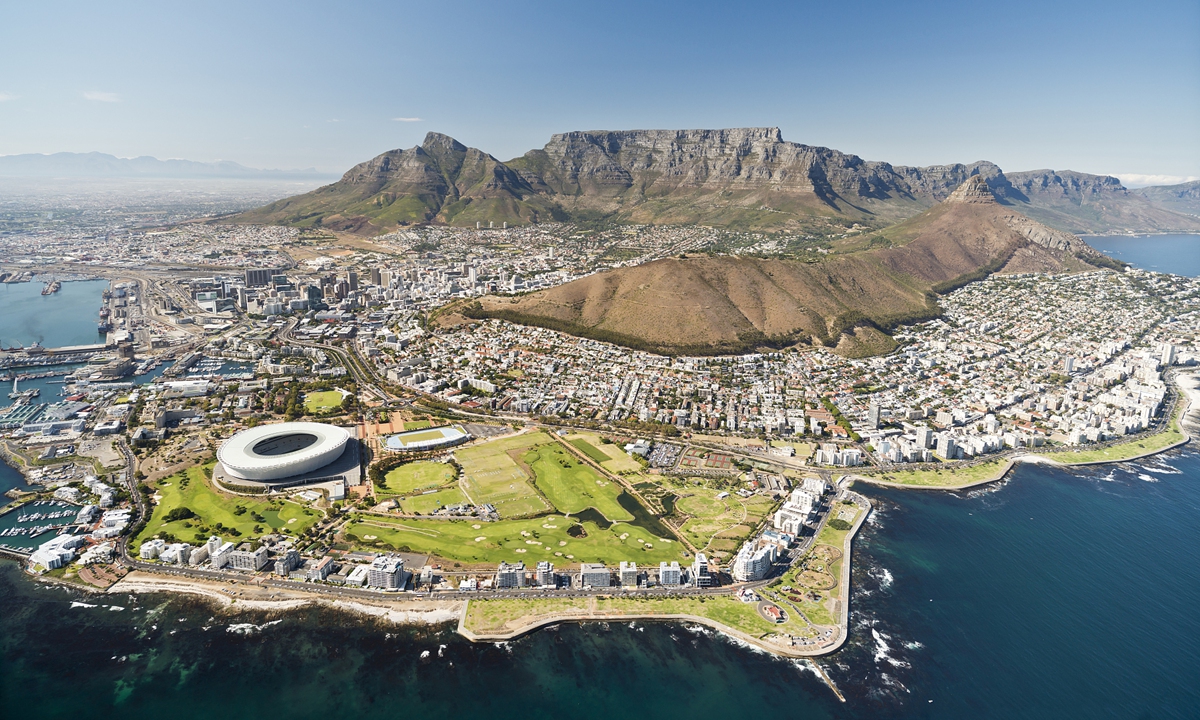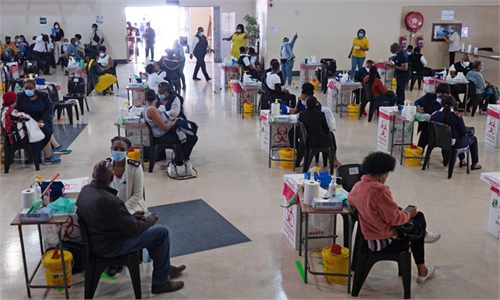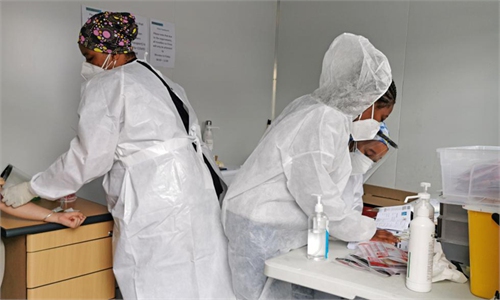
A general view of South Africa Photo: VCG
South Africa will host the continent's first COVID-19 vaccine production facility, as President Cyril Ramaphosa said Monday Africa now understood that doses would "never come" from elsewhere in time to save lives.
Ramaphosa joined the World Health Organization (WHO) and French President Emmanuel Macron in announcing the new hub for Messenger RNA coronavirus vaccine technology.
But as the project will take time to get off the ground, no vaccines are expected from it until 2022.
At tech transfer hubs, the technology is established at industrial scale, while interested manufacturers can receive training and any necessary licences to the technology.
"The ability to manufacture vaccines, medicines and other health-related commodities will help to put Africa on a path to self-determination," Ramaphosa told a WHO virtual press conference via video-link.
"It's been shown now that we just cannot continue to rely on vaccines that are made outside of Africa because they never come. They never arrive on time and people continue to die."
The hub is seen by the WHO as a way to combat the vast inequality in access to vaccines between the world's wealthiest and poorest nations.
WHO chief scientist Soumya Swaminathan said it could take nine to 12 months before COVID-19 vaccines could be produced in South Africa using tested and approved processes.
Under the tech transfer hub system, the WHO and its partners bring in the production know-how, quality control and necessary licences to enable a rapid rollout.
At the South African hub, the bio-pharmaceutical company Biovac will act as the developer; the Afrigen biotechnology firm will be the manufacturer; and a consortium of universities will provide the scientific know-how.
Messenger RNA genetic technology - as used in the Pfizer-BioNTech and Moderna coronavirus jabs - trains the body to reproduce spike proteins similar to those found on the coronavirus. When exposed to the real virus later, the body recognizes the spike proteins and is able to fight them off.



